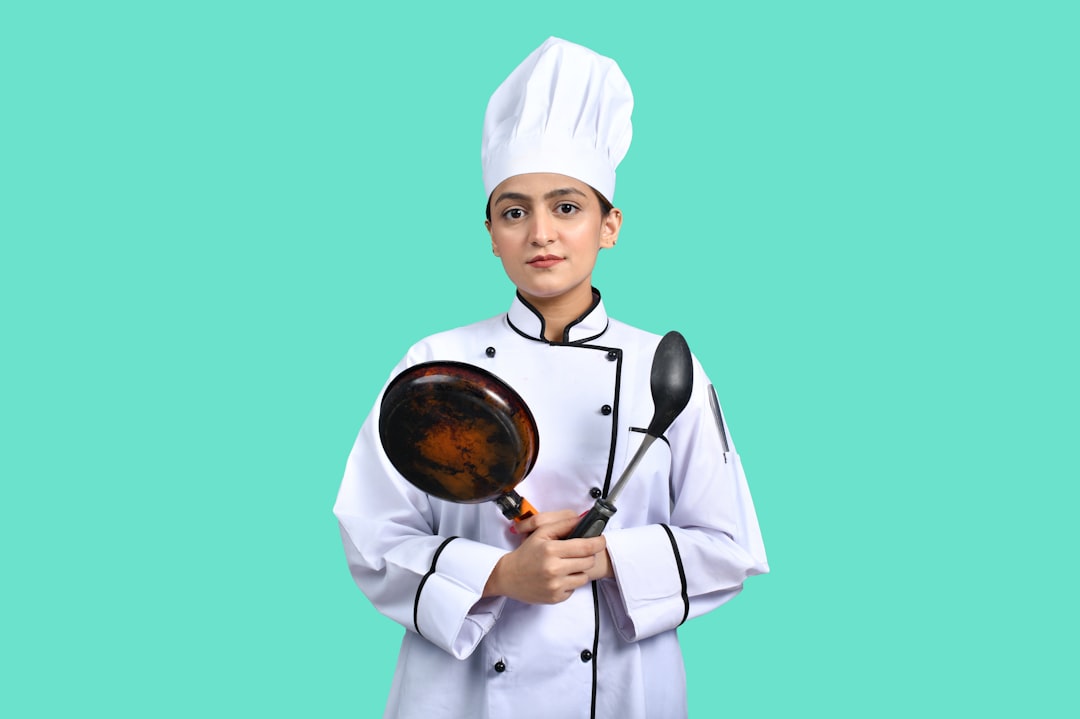Unleash Your Inner Chef: Mastering the Art of Cooking

Embarking on the journey from a nervous amateur to a confident cook is an exciting and rewarding endeavor. With the right essential cooking techniques and tips, you can transform your time in the kitchen into a delightful experience. Let's dive into the world of cooking basics and discover how to elevate your culinary skills.
First and foremost, understanding the importance of proper knife skills is crucial. A sharp knife not only makes cutting and chopping easier but also ensures your safety in the kitchen. Invest in a high - quality chef's knife and learn how to hold it correctly. The pinch grip, where you hold the blade between your thumb and index finger near the blade's base, gives you better control. Practice different cuts such as julienne (thin strips), dice (small cubes), and chiffonade (rolling and slicing herbs). This will not only make your food look more professional but also help it cook evenly.
Another fundamental aspect is learning about different cooking methods. One of the most common methods is sautéing. Sautéing involves cooking food quickly in a small amount of fat over medium - high heat. It's perfect for vegetables, meats, and seafood. Start by heating your pan on the stove and adding a small amount of oil or butter. Once the fat is hot, add your ingredients in a single layer, and don't overcrowd the pan. Stir or toss the food frequently to ensure even cooking. For example, when sautéing mushrooms, you'll notice they release water at first. Keep cooking until that water evaporates, and the mushrooms start to brown, which enhances their flavor.
Roasting is another great cooking technique. It's ideal for large cuts of meat, whole chickens, and root vegetables. Preheat your oven to the appropriate temperature, usually between 375°F and 450°F (190°C - 230°C). Season your food generously with salt, pepper, and any other desired herbs or spices. Place the food on a baking sheet or in a roasting pan, and allow it to cook in the hot oven. The dry heat of the oven caramelizes the outside of the food, creating a delicious crust while keeping the inside tender and juicy. Basting the meat with its own juices or a little bit of oil during the cooking process can also help keep it moist.
When it comes to boiling and simmering, these methods are often used for cooking grains, pasta, and soups. Boiling is when the liquid reaches a full, rolling boil, with large bubbles breaking the surface continuously. Simmering, on the other hand, is a gentle bubbling, where small bubbles rise to the surface occasionally. For example, when cooking pasta, bring a large pot of salted water to a boil. Add the pasta and stir it to prevent it from sticking together. Follow the cooking time on the package, but remember to taste it a minute or two before the suggested time to ensure it has the right texture. Overcooked pasta can be mushy, while undercooked pasta is hard and unappetizing.
Understanding the science behind cooking is also essential. For instance, when baking, the chemical reactions between ingredients like flour, sugar, eggs, and leavening agents (such as baking powder or baking soda) are what make your cakes, cookies, and bread rise. Measuring your ingredients accurately is crucial in baking. Use dry measuring cups for dry ingredients like flour and sugar, and liquid measuring cups for liquids like milk and water. Sifting the flour can also help incorporate air into it, resulting in a lighter texture in your baked goods.
Marinating is a great way to add flavor to your meats, vegetables, and even tofu. A marinade typically consists of an acid (such as vinegar, lemon juice, or yogurt), an oil, and seasonings. The acid helps break down the fibers in the meat, making it more tender, while the oil helps carry the flavors and keeps the food moist. Place your food in a shallow dish or a resealable plastic bag, and pour the marinade over it. Make sure the food is completely coated, and refrigerate it for the recommended time. The longer you marinate, the more flavor will penetrate the food, but be careful not to marinate meats in acidic marinades for too long, as they can become mushy.
Lastly, don't be afraid to experiment. Try new ingredients, spices, and flavor combinations. Visit your local farmers' market to discover unique and fresh produce. You can also look for international cookbooks or online recipes to expand your culinary horizons. Cooking is an art, and the more you practice, the better you'll become. Take notes of what works and what doesn't in your cooking experiments, and use those lessons to improve your future dishes.
In conclusion, by mastering these essential cooking techniques and tips, you can transition from a nervous amateur to a confident cook. Whether you're cooking for yourself, your family, or friends, the joy of creating delicious meals is truly rewarding. So, roll up your sleeves, put on your apron, and start cooking!